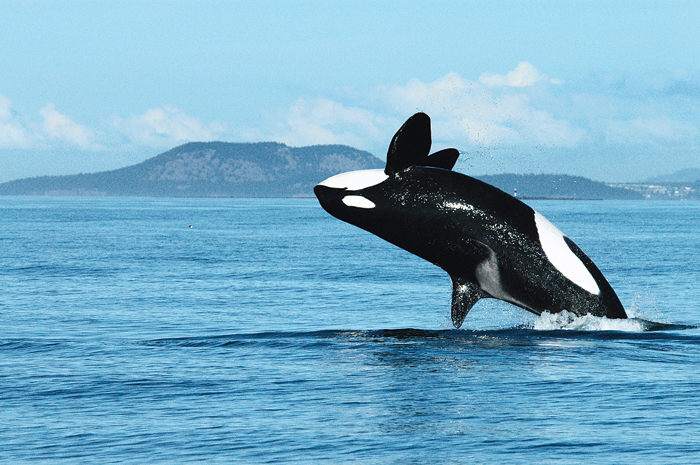Killer whale grandmothers help care for the young and improve the survival chances of their grand-calves, scientists said on Monday after a study that has for the first time established this “grandmother effect” in a post-menopausal non-human species.
The scientists in Canada and the UK, who analysed killer whale populations in the northern Pacific, have found that grandmother killer whales increase the survival of their grand offspring and this beneficial effect is greatest when the grandmothers are not reproducing.
Their findings, published on Monday in the Proceedings of the National Academy of Sciences, has also helped to resolve the long-standing riddle in evolutionary biology: why do killer whales, like humans, have long post-reproductive life spans among non-human animals?
“Among the 5,000-plus mammals, why has menopause evolved only in humans, killer whales and three other toothed whale species — this has been a puzzle,” Darren Croft, professor of animal behaviour at the University of Exeter in the UK and study co-author said.
“We find that just as in humans, grandmother whales are better at providing care to grand offspring than whales that are still reproducing,” Croft told The Telegraph.
Earlier, research on humans has suggested that post-reproductive life span has evolved because women in the post-reproductive phase can help their young, including grandchildren — an idea that some scientists have called the “grandmother effect”.
Although there is evidence for the grandmother effect in elephants too, the scientists point out that there is no evidence yet for such an effect in non-human animals with long post-reproductive life spans such as killer whales.
For their study, Daniel Franks at the University of York in the UK and collaborators analysed over three decades of data on the changes in two killer whale populations in the northern Pacific tracked by the Centre for Whale Research, Fisheries and Oceans, Canada.
Female killer whales stop reproducing in their 30s or 40s but continue to live for decades after menopause, like humans.
“Our findings show that just as in humans, grandmother killer whales that have gone through menopause are better able
to help grand offspring and these benefits to the family group can explain why menopause has evolved in killer whales,” Franks told this newspaper.
Their study found that when killer whale mothers and daughters cobreed, the calves of mothers from the older generation have significantly higher mortality rates, while the grand offspring of post-reproductive killer whale grandmothers have higher survival rates.











